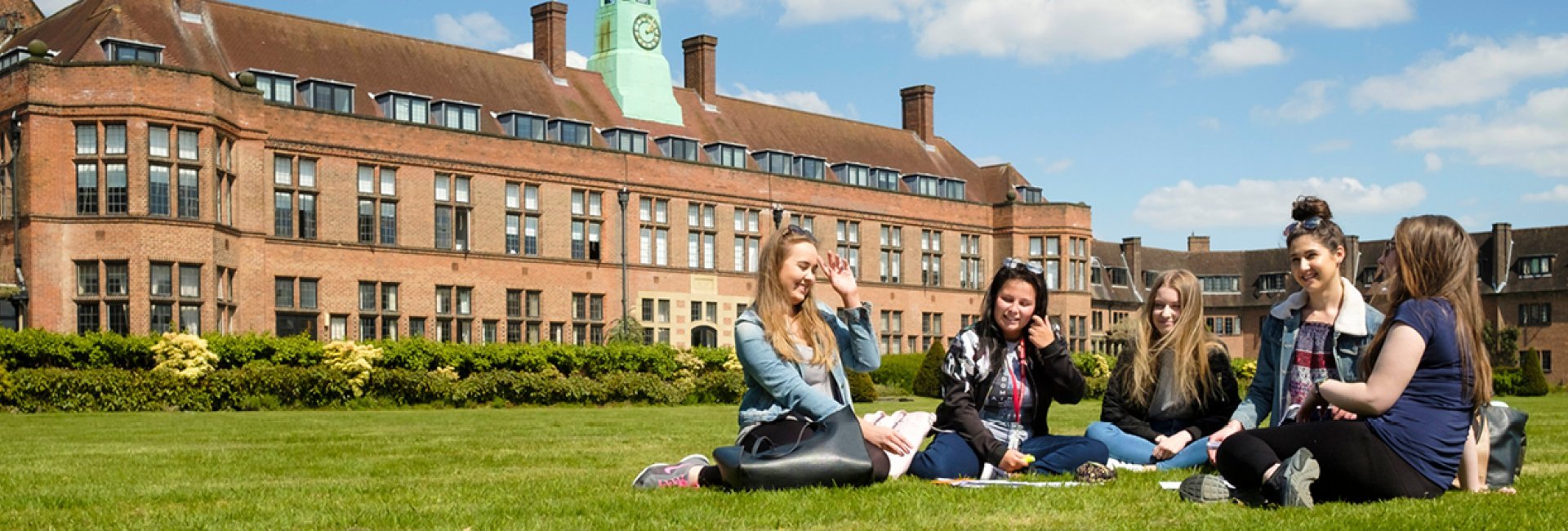Open Day- Saturday 28th June 2025
28 Jun 2025, 09:00
Liverpool, Merseyside


Please note that Combined Honours degrees at Liverpool Hope University are split 50/50. This means both subjects will be studied equally.
Conservation Biology
Conservation biology is concerned with the protection and management of nature and the Earth’s biodiversity. It involves an evaluation of human and other factors that affect all living organisms with the aim of protecting and conserving species, their habitats and ecosystems. It is an interdisciplinary subject that draws on natural sciences to devise satisfactory processes and approaches by which to sustain and protect plant and animal biodiversity in the UK and abroad.
This course mainly focuses on conservation in terrestrial environments. It develops knowledge of key areas such as the principles and practices of ecology, habitat management, nature conservation and the functioning of natural systems, particularly with regard to different points of view including scientific, ethical and philosophical perspectives. Opportunities are provided to apply knowledge and understanding of conservation biology during field courses within the UK and abroad giving first-hand experience of a range of ecosystems.
Sport and Exercise Science
Our degree is founded on the core disciplines of sport and exercise science, namely psychology, physiology and biomechanics, and considers in detail three core questions from a multidisciplinary perspective. How does the human body respond to the different types of exercise, how
can we maximise the effects of training on sport and exercise performance, and how can physical activity reduce and prevent disease?
Study with us and you will have full access to the multi-million pound, state-of-the- art Health Science Building and Sports Complex, incorporating dedicated research space and new teaching laboratories. This facility houses ultra-modern equipment where you will learn to conduct complete physiological, psychological and biomechanical profiles of human sports performance using breath-by-breath expired gas analysis, blood analysis, vascular and cardiac screening, body composition analysis, eye-tracking, electromyography and motion capture to name but a few.
Liverpool Hope University offers an integrated curriculum. Please go to the course link provided for further information on the topics you will study as part of this degree.
Students are assessed via a number of methods. Please go to the course link provided for further information.
To work as a teacher at a state school in England or Wales, you will need to achieve qualified teacher status (QTS). This is offered on this course for the following level:

Learn what it's like to study at Liverpool Hope University. From key stats to campus highlights, open days, and more - find everything you need to know here.
The following entry points are available for this course:
At Liverpool Hope University we welcome applicants from international students. Please refer to www.hope.ac.uk/international or contact international@hope.ac.uk if you have any questions or require additional support.
UCAS Tariff points must come from a minimum of two A Levels (or equivalent). Additional points can be made up from a range of alternative qualifications.
Please contact our External Relations team directly for further information on how you can meet our entry requirements and what other qualifications may be accepted.
t: 0151 291 3111
e: enquiry@hope.ac.uk
| Test | Grade | Additional details |
|---|---|---|
| IELTS (Academic) | 6 | For International students, an overall score of 6.0 is required, with 6.0 in both reading and writing and no individual score lower than 5.5. |
This section shows the range of grades students were previously accepted with - learn more. It is designed to support your research but does not guarantee whether you will or won't get a place. Admissions teams consider various factors, including interviews, subject requirements, and entrance tests. Check all course entry requirements for eligibility.
We are unable to show previous accepted grades for this course. This could be because the course is new, it's a postgraduate course, there isn't enough historical data, or the provider has opted out of sharing their entry grades data for this course - learn more.
Subject Spotlights give you the chance to try a higher education course before you apply. Delivered by the lecturers themselves you will gain insight into what it's like to study the course and give your personal statement a boost.

| Location | Fee | Year |
|---|---|---|
| EU | £9250 | Year 1 |
| England | £9250 | Year 1 |
| Northern Ireland | £9250 | Year 1 |
| Scotland | £9250 | Year 1 |
| Wales | £9250 | Year 1 |
| Channel Islands | £9250 | Year 1 |
| International | £12500 | Year 1 |
Tuition fee status depends on a number of criteria and varies according to where in the UK you will study. For further guidance on the criteria for home or overseas tuition fees, please refer to the UKCISA website.
Please note, some of our courses may have additional costs. Please visit the course webpage for further information.
Hope Park
Liverpool
L16 9JD
Visit our website Visit our course page
Email:enquiry@hope.ac.uk
Phone:0151 291 3111
Email:healthsciences@hope.ac.uk
Phone:0151 291 3441
Email:geography@hope.ac.uk
Phone:0151 291 2168